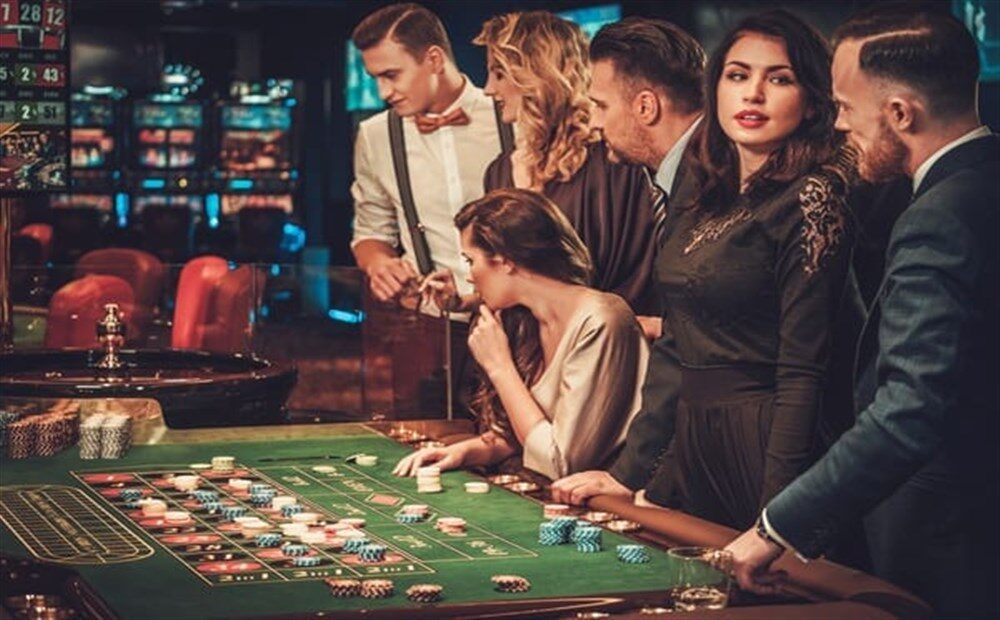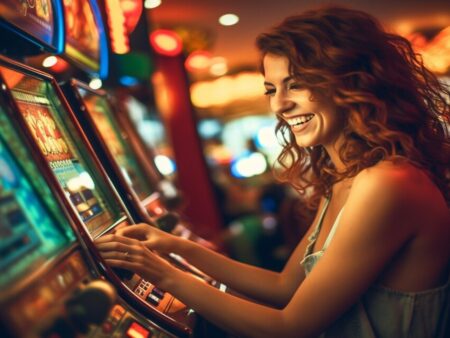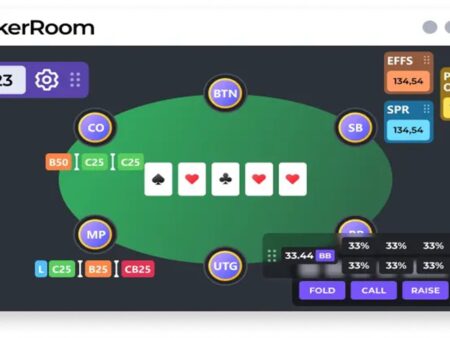Why do people gamble? Exploring the Intricate Psychology of Gambling
Gambling, a timeless and intricate activity, has ensnared the fascination of individuals for centuries. Beyond mere entertainment, it harbors profound psychological dimensions that cast a powerful spell on those who partake in its allure. Let’s delve into the complex realms of the human psyche to unravel why people are drawn to the enigmatic world of gambling.
Risk and Reward: The Dopaminergic Thrill
At the heart of gambling lies the magnetic pull of risk and the alluring promise of reward. The brain’s reward center, fueled by the release of dopamine, plays a pivotal role. The anticipation of a potential win triggers a surge of this neurotransmitter, engendering a pleasurable sensation. This anticipatory pleasure can transform into an addiction, compelling individuals to persist in gambling, even against unfavorable odds.
The Gambler’s Fallacy: A Cognitive Quandary
Many gamblers succumb to the gambler’s fallacy, a cognitive bias rooted in the belief that an outcome is “due” if it hasn’t occurred recently. For instance, if a roulette wheel has landed on red multiple times, the fallacy dictates that black is now more likely. This cognitive distortion can lead to irrational betting behavior, driven by a misinterpretation of probability.
Loss Aversion: The Sting of Defeat
Loss aversion, a psychological factor pervasive in gambling, accentuates the pain of loss over the joy of victory. Individuals often feel losses more intensely, fostering risky behaviors such as chasing losses—continuing to gamble in a desperate bid to recoup what’s been lost.
Near-Miss Phenomenon: The Illusion of Almost Winning
Games, particularly slot machines, exploit the near-miss phenomenon. Players come tantalizingly close to a win but fall short. This near-victory sensation, more motivating than a clear loss, keeps players engaged and chasing the elusive triumph.
Escape from Reality: A Temporary Respite
For some, gambling serves as an escape from the rigors of daily life, providing a temporary reprieve from worries and stressors. The unpredictability and excitement inherent in gambling become a form of therapeutic escapism.
Social Aspect: The Power of Shared Experience
In settings like casinos, gambling assumes a social dimension. The camaraderie of shared experiences enhances the pleasure derived from the activity. The social interaction becomes a compelling psychological motivator.
Compulsion and Addiction: The Dark Abyss
Gambling addiction, a grave psychological issue, unfolds as a loss of control, preoccupation, and continued gambling despite adverse consequences. Deciphering the intricate psychology of addiction becomes imperative in extending help to those ensnared in its grip.
Self-Esteem and Identity: The Highs and Lows
For some, self-esteem and identity intertwine with gambling success. Wins elevate self-worth, while losses deal a blow to the ego. This cyclical quest for a positive self-image through gambling can perpetuate a rollercoaster of highs and lows.

The Healthy Gambler’s Perspective
The American Gaming Association (AGA) estimates that a staggering 90% of gamblers engage in responsible gaming practices, classifying them as recreational gamblers. These individuals revel in the thrill of casino games without succumbing to compulsive behaviors. Let’s explore why these healthy bettors are drawn to the world of casino gaming:
Enjoyment: A Symphony of Fun
For many, playing real money slots and other casino games is a source of pure enjoyment. The allure of games designed for monetary stakes adds an extra layer of entertainment, making it a delightful pastime for most gamblers.
Excitement: The Adrenaline Surge
Beyond mere enjoyment, gambling often brings an adrenaline rush. The thrill of winning mirrors the exhilaration experienced in sports competitions, creating a heightened sense of excitement that keeps players engaged.
The Camaraderie: Socializing at Its Core
Many players are drawn to gambling for its social element. Whether it’s craps enthusiasts betting on the shooter or poker players relishing the competitive camaraderie, the social aspect adds a layer of connection to the gambling experience.
Impressing the Crowd: A Display of Wealth
Some individuals view gambling as an opportunity to showcase their wealth. Acting as big spenders in the casino, they relish the chance to impress fellow gamblers with their financial prowess.
High Roller Treatment: The VIP Experience
High rollers revel in the attention, complimentary offerings, and other rewards bestowed upon them by casino staff when they indulge in substantial spending. The allure of the high roller treatment adds an extra layer of satisfaction to their gambling experience.
The Challenge: A Battle of Skill
Skill-based games like blackjack and poker present a challenge that certain gamblers find irresistible. The strategic elements involved in these games contribute to the allure of overcoming intellectual hurdles.

Scientific Research on the Psychology of Gambling
While the majority of gamblers fall within the recreational or social gambler category—considered healthy and in control—there exists a darker side. A small percentage falls into the realm of problem gamblers or pathological gamblers. Problem gamblers grapple with controlling their betting levels, displaying risk factors that border on compulsive gambling. Pathological gamblers, on the other hand, spiral out of control, unable to rein in their spending within the casino environment.
In conclusion, gambling transcends mere chance and luck; it is intricately intertwined with human psychology. The interplay of risk, reward, cognitive biases, and emotional highs and lows transforms gambling into a complex and compelling activity.
Recognizing these psychological nuances is pivotal for both those who enjoy responsible gambling and those teetering on the edge of gambling-related problems. Approaching gambling with awareness, understanding, and caution is key to fostering a healthy relationship with this form of entertainment.



